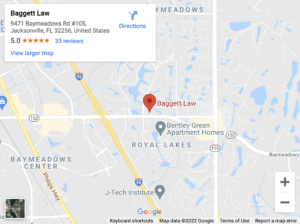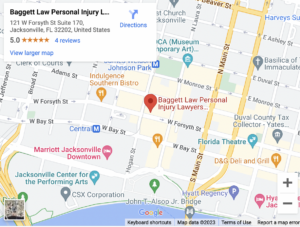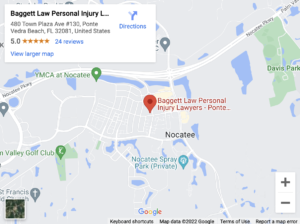
Each personal injury case is unique. You cannot base what your case is worth on another person’s case.
An experienced attorney analyzes the facts and circumstances of the case before estimating its value. Many attorneys will work with medical experts and specialists to determine the extent of your injuries. In addition, they’ll work with financial professionals to estimate the cost of ongoing medical care and future lost wages.
The goal is to maximize the amount you can receive for a personal injury settlement. Therefore, a skilled personal injury lawyer won’t rush to settlement or allow insurance companies to pressure clients into accepting less than their claim is worth.
Continue reading to learn more about how to calculate the fair value of your personal injury case.
Calculating Economic Damages for a Personal Injury Case

Most attorneys begin by examining the total economic damages you sustained because of the injury or accident. Economic damages are the actual expenses and out-of-pocket costs you incur due to the accident, injury, and recovery. They also include future damages related to a permanent impairment or disability.
Economic damages include, but are not limited to:
- The total medical bills incurred to diagnose and treat your injuries
- Property damage
- The cost of physical therapy, rehabilitation, occupational therapy, and counseling
- The cost of future medical treatment, personal care, and long term nursing care
- Your loss of income and benefits
- Decreases in your earning potential because of permanent impairments
- Travel expenses to and from medical appointments
- Out-of-pocket expenses for medications, medical supplies, medical devices, household services, and other costs
Typically, accident victims are entitled to receive reimbursement for all financial losses.
However, if your health insurance company paid your medical bills, the company may demand reimbursement for those costs through a subrogation claim. Your personal injury lawyer may be able to negotiate with your health insurance provider to lower the amount they accept to satisfy their subrogation claim.
Medical providers are also reimbursed for outstanding medical bills and liens.
Calculating Non-Economic Damages for a Personal Injury Case
In addition to your financial losses, you may also be entitled to compensation for your pain and suffering. Non-economic damages are “intangible” losses. Therefore, it is more difficult to calculate the value of these damages.
The multiplier method is often used to calculate the value of non-economic damages. A number between 1.5 and five is assigned based on the facts of your case. That number is multiplied by your total economic damages to determine the value of your pain and suffering.
Factors that could impact the value of your non-economic damages include:
- The type and severity of your injuries
- The duration of your recovery
- Whether you sustained permanent disabilities or impairments
- Your age and overall health before the injury
- How the injury impacts your daily activities
- Whether you developed post-traumatic stress disorder, anxiety, depression, or other emotional disorders because of the accident and/or your injury
- How the injury impacts your quality of life
- The duration and type of medical treatments you were forced to endure
- Whether you sustained scarring or disfigurement
In addition to pain and suffering damages, you could also receive punitive damages. Punitive damages are awarded by a judge or jury to “punish” a defendant for intentional acts or gross negligence that injures another person. Punitive damages are awarded in a small number of personal injury lawsuits.
What Other Factors Impact the Value of a Personal Injury Case?
In addition to the severity of your injuries, other factors can affect how much money you can receive for your personal injury claim. Those factors include, but are not limited to:
Availability of Insurance Coverage
Liability insurance compensates victims for damages when the insured causes an accident or injury. However, the at-fault party may not have liability insurance or sufficient coverage to pay for damages. If so, your option is to sue the person.
Filing a personal injury lawsuit can result in a judgment against the other party. You can pursue collection efforts, including petitioning for a wage garnishment order. However, Florida garnishment laws could limit your ability to collect the money owed to you for an injury claim.
Allegations of Comparative Fault
Florida’s modified comparative fault laws can decrease the value of a personal injury claim if the victim is partially to blame for the cause of their injury. Damages are reduced by the percentage of fault assigned to the victim. There is also a 51% bar to recovery rule in place.
For example, you are involved in a car accident in Jacksonville, FL. The jury finds that your damages are worth $250,000. However, the jurors also found that you contributed to the cause of the car crash by 30 percent.
In this case, the most you could receive for your damages would be $175,000. That amount equals the total judgment of $250,000 less $75,000 (30% for your portion of the fault).
If, instead, you were found to be 51% or more to blame for the accident, you would not be able to recover any damages.
You can protect yourself against allegations of fault by never accepting blame or apologizing for an accident. It is also not in your best interest to talk to an insurance adjuster before seeking legal advice from a Jacksonville auto accident attorney regarding your claim.
Statute of Limitations
The statute of limitations (deadline) for filing most personal injury lawsuits in Florida was recently adjusted. By default, you’ll have four years if your accident happened on or before 3/23/2023, and two years otherwise. However, there are exceptions.
For example, most medical malpractice lawsuits must be filed within two years from the date of injury. The deadline might be extended by two years if you did not discover the injury right away.
As the statute of limitations nears, you must decide whether you want to accept a settlement or file a lawsuit. Your lawyer will discuss the pros and cons of a settlement versus a lawsuit.
Caps on Compensation for Damages
Some states place caps on the amount of money a person can receive for a personal injury claim. The good news is that Florida does not cap the amount you can receive for economic damages.
However, Florida caps non-economic damages to $500,000 in most medical malpractice lawsuits.
There is also a cap on punitive damages. The maximum a person may receive for punitive damages is three times the amount of compensatory damages. However, the amount cannot exceed $500,000. There are exceptions in cases involving intentional acts, child abuse, elder abuse, and abuse of a person with a disability.
Schedule a Free Consultation With a Jacksonville Personal Injury Lawyer to Discuss Your Injury Case
A personal injury attorney will work to maximize your recovery by exploring all sources of compensation for your personal injury claim. Contact an experienced Jacksonville personal injury attorney to schedule a free case evaluation.




